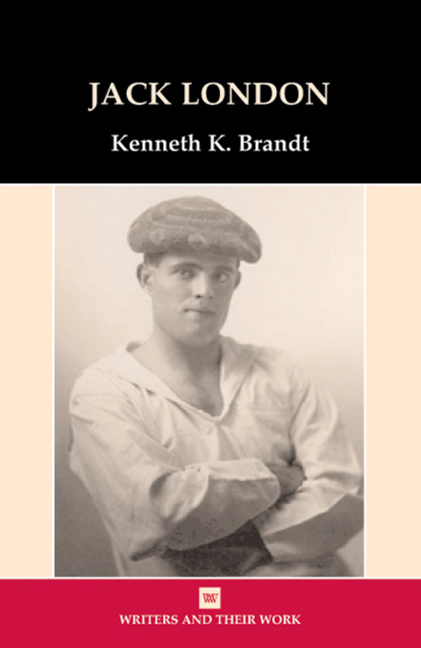Book contents
- Frontmatter
- Contents
- Biographical Outline
- Abbreviations
- 1 Jack London: An Adventurous Mind
- 2 Getting the Perspective: The Northland Stories
- 3 Into and Out of the Wild: The Call of the Wild and White Fang
- 4 Class Struggle: Socialist Writings and The Iron Heel
- 5 Individualism and its Discontents: The Sea-Wolf and Martin Eden
- 6 Free and Determined: Questions of Agency in The Road and The Star Rover
- 7 Sailing West: The Pacific Stories
- 8 Coda: Literary Legacy and Scholarship
- Notes
- Select Bibliography
- Index
6 - Free and Determined: Questions of Agency in The Road and The Star Rover
- Frontmatter
- Contents
- Biographical Outline
- Abbreviations
- 1 Jack London: An Adventurous Mind
- 2 Getting the Perspective: The Northland Stories
- 3 Into and Out of the Wild: The Call of the Wild and White Fang
- 4 Class Struggle: Socialist Writings and The Iron Heel
- 5 Individualism and its Discontents: The Sea-Wolf and Martin Eden
- 6 Free and Determined: Questions of Agency in The Road and The Star Rover
- 7 Sailing West: The Pacific Stories
- 8 Coda: Literary Legacy and Scholarship
- Notes
- Select Bibliography
- Index
Summary
Like other major Progressive-Era American writers, London was eager to challenge Victorian moral pieties and unseat the naı ¨ve belief ‘that “free will” [was] absolute – i.e., that human beings are wholly free to act according to the allegedly clear dictates of reason and conscience, [and are] capable of rationally shaping the course of their experience in a benign manner’. London frequently represents the interplay of freedom and determinism in his work, and The Road, his tramp memoir, and The Star Rover, his prison novel, address issues of agency through particularly compelling scenarios. Most often, London posits that a viable category of agency exists and that a degree of moral responsibility is defensible; however, the degree of freedom and level of accountability he most consistently portrays are notably limited. Though his views on agency were not static, London most frequently dramatizes a position in the free will-determinism debate that resembles a compatibilistic view of free will.
Ian F. Roberts explains that compatibilists, sometimes called ‘soft determinists’, see free will as compatible with determinism ‘because free will is most logically and meaningfully defined as the ability to act as one wishes, without denying the fact that one's wishes are themselves determined by one's upbringing, genetics, and circumstances’; therefore, Roberts maintains, ‘a free act is not one that is undetermined, but simply one which is not constrained by certain types of coercion or psychological compulsion’. Freedom, as conceived by compatibilists, is a matter of having the ability to make unconstrained choices. As Hobbes put it, the liberty of man ‘consisteth in this, that he finds no stop in doing what he has the will, desire, or inclination to do’. Compatibilism seems especially supportable in terms of what Robert Kane refers to as everyday ‘surface’ freedoms, but it can become more problematic when we begin to consider the wider conceptions of autonomy that many often associate with free will. We seem to possess, Kane writes, the ‘freedom to act or to choose what we [will], but [we do not] have the ultimate power over what it is that we willed’ Larger constraints impinge on an all-encompassing capacity to exercise free will. Can free will truly exist within the confines of the larger deterministic factors that envelop our actions?
- Type
- Chapter
- Information
- Jack London , pp. 92 - 105Publisher: Liverpool University PressPrint publication year: 2018

